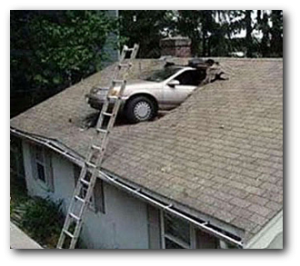This area of Bankruptcy law deals with a lot of ‘twos.’ There are two components of a Bankruptcy: assets and debts. There are two kinds of debts: dischargeable and non-dischargeable. There are two kinds of assets: exempt and non-exempt. There are two kinds of creditors: secured and unsecured. And there are two sets California law that you choose from to claim your assets : “703” exemptions and “704” exemptions. (These numbers refer to California Code of Civil Procedure sections.)
The assets that are safe from Bankruptcy, and the assets that aren’t safe, in my opinion, should always focus on the word equity. Why? Because the Bankruptcy system always wants this question answered: “Is there any equity available for the unsecured creditors?” Secured creditors have rights to your collateral that survive the Bankruptcy filing. When a Bankruptcy trustee sells assets, it is almost always for the benefit of unsecured creditors.
When you file Bankruptcy, there is the creation of a Bankruptcy estate. Your Bankruptcy estate is a different entity than you and exists for as long as your Bankruptcy case is pending. A Bankruptcy estate exists in any chapter; whether it’s 7, 11, 12, or 13.
Your Bankruptcy estate is made up of your assets, and your debts. On the asset side, there are two kinds of assets: exempt and non-exempt. Exempt assets are the ones you keep. Common examples are your normal household goods and furnishing, clothing and personal effects and retirement plans. From those basic necessities of life, the law branches out and there are different laws that apply.
Non-exempt assets are the ones that are subject to the possibility of being disposed of in the Bankruptcy court. It doesn’t always mean they get sold. There has to be enough value in them to make it worthwhile to incur the fees and costs of selling them through the Court.
What are exempt assets? For most people filing Bankruptcy in Bakersfield, or anywhere in Kern and Inyo County, the common exempt asset will be their home, if the equity in the home falls within the amount of exemption you can claim under California law. In 2014, the amount of exempt equity is from $75,000 to $175,000. These are the amounts of what you hear called the ‘homestead exemption.’ They are statutory amounts that do not require the recording of a declaration of homestead. This is the area of law that applies the “704” exemptions.
Most people are able to keep their cars if the equity falls below certain limits under California law. Most people who are paying for a car don’t have equity due to the depreciation of that asset. So why were your neighbors able to keep everything? It was because they didn’t surpass equity limits. Don’t forget they are still making their house and car payments.
There are numerous other assets in the “704” that have their own applicable exemption laws that are beyond the scope of this blog. Naturally, a qualified Bakersfield Bankruptcy attorney can assist you in maximizing your exemptions as you go through the Bankruptcy process.
A word or two about “703” exemptions, the California wildcard or grubstake exemption. These are nicknames for exemption laws in California that let you exempt anything that currently in this year of 2014 is worth approximately $26,000. This exemption is available if you don’t use the laws that pertain to the homestead exemptions. For example, you can exempt approximately $26,000 of cash. You can exempt a combination of things; for example, $23,000 of cash and a $3,000 worth of baseball trading cards. Or $20,000 cash and $6,000 of baseball cards (or Star Wars memorabilia, etc. etc. ) Like the “704” exemptions, there are numerous other laws pertaining to other assets that are beyond the scope here.
Two things to tell you in closing, One: don’t stress about what could be lost when you file. A good Bankruptcy attorney will be able to forecast what assets are safe, and what assets might be in play. You should be able to file without guessing about it. Two: take the care and time needed to list all your assets and discuss them with your lawyer. This is part of the careful preparation that should take place as you go through this process.
Max Gardner 661-888-4335
This house and car are likely exempt.






